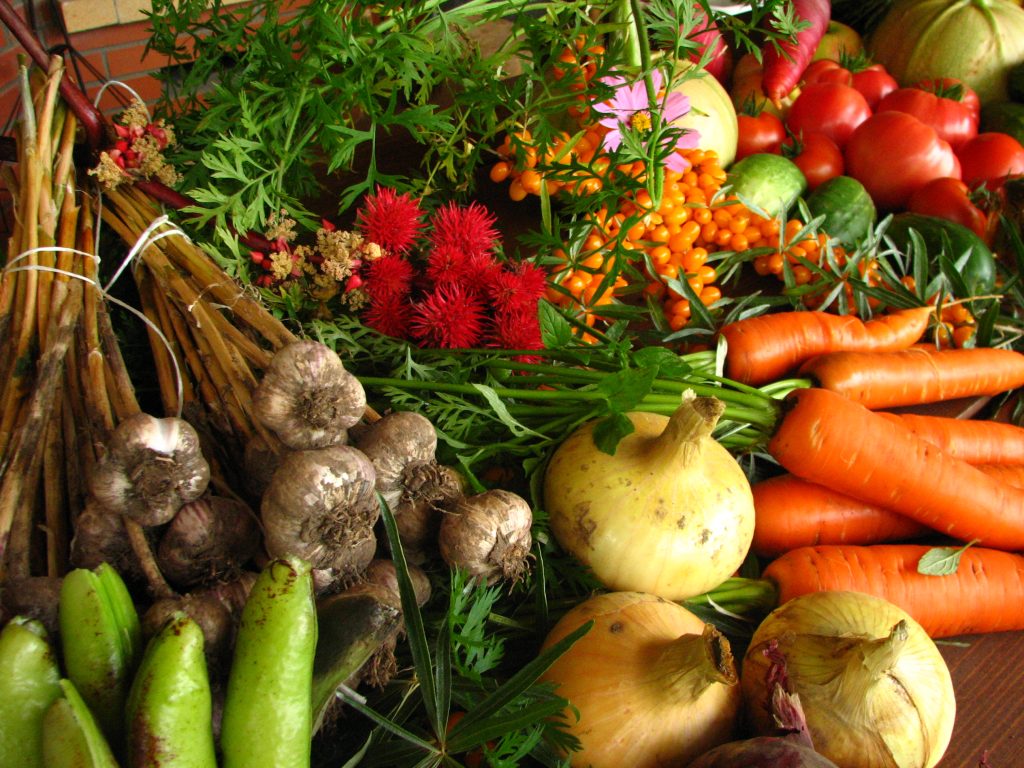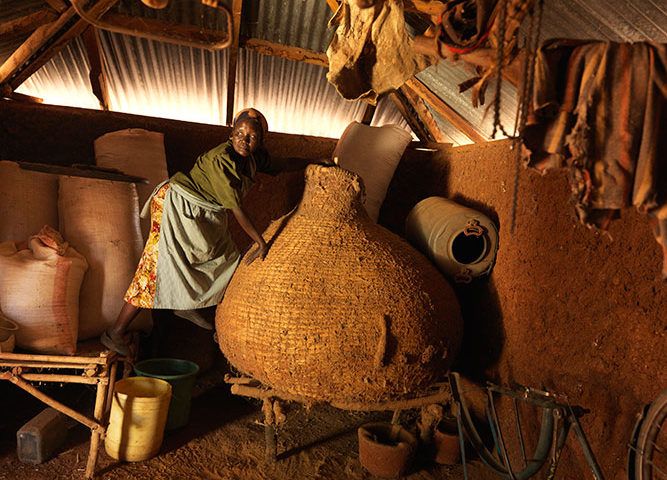
Gervasio Mwituria M’anampiu, 52 has a five acre farm in Meru and plants a variety of traditional crops. His yields include: sweet potatoes, beans, groundnuts, bananas, vegetables like Sukuma, spinach.
He is proud of his farms on which he uses irrigation for water. He has two farms. On one, he only uses compost manure; on the other he uses chemical fertiliser.
“I get best produce from the farm on which I use compost manure. Compost manure lasts longer and retains water while the chemical fertiliser takes just a season or even less to get depleted from the soil.”
The results? Better produce from the farm on which he uses compost manure.
Compost lasts longer (3-4 years) and retains water longer while the chemical fertiliser takes just a season or even less to get depleted from the soil. He also says compost manure does not add any acidity to the soil but the fertiliser does thus affecting productivity.
In terms of harvest, Gervasi even says the produce from the land with compost manure weights heavier because it gets adequate nutrients.
“For people to believe, they have to see what I am doing and see the harvest. I can also encourage them to use a portion of their land to practice ecological farming and then compare with the one with fertiliser. Ecological farming is about doing. If you don’t do it, you cannot see it.”.
Gervasio calls for training on compost manure because is better and cheaper. He says people should learn about crops that prevent pests like onions, coriander and “mufangi.”
Better yields, better income and better food
One of the persistent challenges facing many African farmers is an agriculture system that insists upon using certified seeds and the agrochemical pesticides and fertilizers that accompany them. But long ago, Theresa Makena, 49, took a decidedly different approach – ecological agriculture.
A member of the Kibuka farmer’s group, Theresa has grown her 10-acre farm over the past 30 years so that it produces millet, sorghum, sekunde as well as livestock such as cows, goats and chicken. But in recent years, climate change and an ever shortening rainy seasons meant she needed a different approach.
Five years ago her farmer’s association was using chemicals for seed preservation but after receiving eco-ag training, they stopped and started using organic manure from their own cows. She says that learning ecological agriculture methods requires more labor but it’s worth it – and profitable.
“One of the things that I am happy about since I started farming organically, is that I now have nutritious food with a better taste.”
After receiving training from the Institute for Culture and Ecology in Kenya (ICE), Theresa was able embrace ecological farming methods to ensure her crops had enough water. The innovative method of creating Zai pits enabled her to increase her yields even when farmers around her, still reliant on natural rainwater, were struggling. Theresa’s yields are so consistent, her granaries are filled to the brim with seeds for the future.
“Yes, I am seed secure. I harvested in July and I still have seeds from the January / February harvest. So, I can say I am food secure as well!”
She adds that her food tastes better than it used to as well. Now, Theresa is sharing her ecological agriculture knowledge with neighboring farmers so they can all plan for the future.


